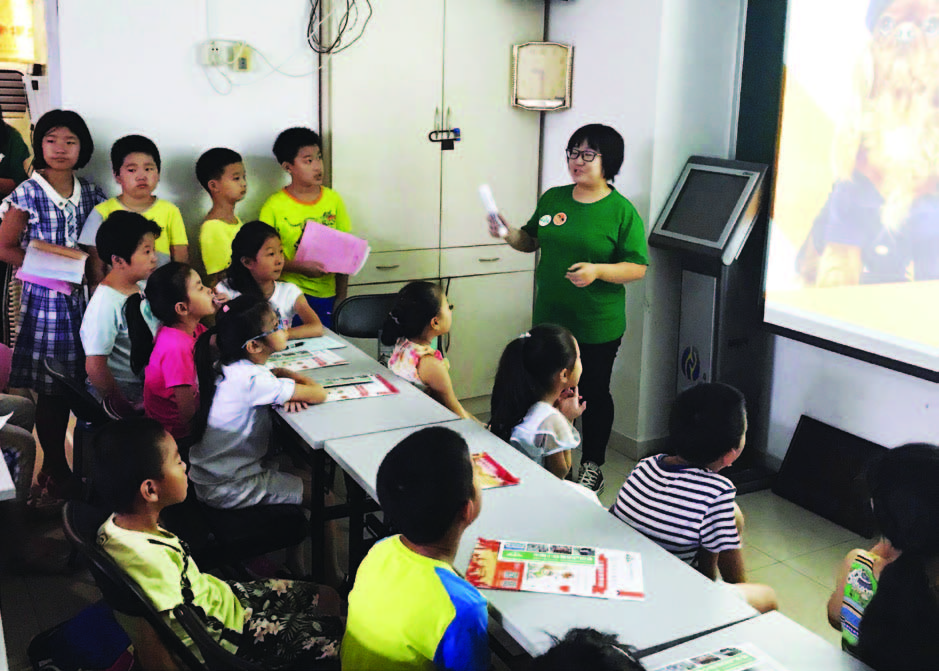
PCD adopts a community-based approach for the promotion of sustainable living. In 2017, the Representative Office in Beijing was set up for more opportunities to understand the thinking and practices of various departments and other organisations on ways to construct an ecologically based civilisation, connecting the solid experience of community practice with national strategies and policies. From 2017 to 2018, we worked with All-China Environment Federation (ACEF) and China Ecological Civilisation Research and Promotion Association (CECRPA) to explore the direction and action of ecological civilisation, including urban and rural environmental outreach, and dialogue at the macro level for rural ecological farming.
It is generally believed that three processes are needed to develop full environmental conservation awareness: cognition, affective experience and action. However, after years of experience, we have found that activities are usually one-off, limited, held at specific locations and targeting only particular groups, and thus impacts tend to be short-lived. The linkage between activity and action is often tenuous. In cooperation with ACEF, we are therefore diversifying ways of designing environmental education activities and strengthening connections among communities.
Compared to those one-off environmental education activities, this project emphasises extension activities backed up by training on theory and knowledge, and practical activities related to the training, so that participants can find avenues for action. For instance, two practical interactive sessions on growing bean sprouts and on making eco-enzyme cleaning agents have shown satisfactory results. Growing bean sprouts is a zero-carbon activity which can be done at home; the experience is easy to share with neighbours and some communities have held their own sprout competitions. After the activity of enzyme making, the bottles of enzyme were gathered at common areas. In the first month, core members of the community took turns to emit gas from the bottles and made daily records. Unlike those one-off activities, these activities have developed into actions, and members work with local administrative bodies for a period of time. Such environmental education promotion design has expanded–from imparting knowledge, to household and community action.
Under the ecological civilisation strategy, the multi-functionality of ecological agriculture has received more and more attention by diverse parties, and a successful manifestation will need everyone’s participation. The perception of a sole identity as either producer, consumer, or educator has gradually changed: interaction and cooperation are needed to establish a social system together that supports the transformation to ecological agriculture. A satisfactory project was joining with CECRPA in 2017 to organise the Ecological Agriculture-Rural Vitalisation sub-forum at the China Ecological Civilisation Forum Huizhou Annual Conference. Its focus was rural vitalisation and eco-agriculture, and there was significant dialogue among experts in forestry and ecology, agriculture, and environmental protection, whether they be academics, government staff, or community workers. This coming together – of about 80 people from across the country – strengthened mutual understanding and acceptance, enabling cooperation on sustainable living.
As a social organisation, PCD sees its role and position as encouraging people to understand the multi-functionality of ecological agriculture, to support diverse groups as they act according to their traditions and cultures, to build useful networks and to facilitate dialogue and cooperation, to promote mutually supportive models that connect villages and cities, and to support community-based practice and action.
(from Annual Report 2017-2018)

